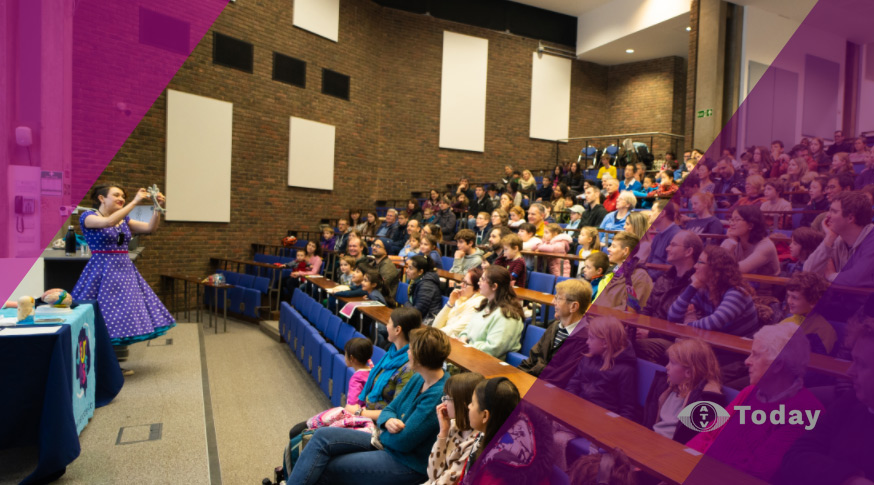The Gates Cambridge Scholarship program is renowned for fostering global leadership and innovation by supporting outstanding scholars from around the world. As part of its ongoing commitment to addressing pressing global challenges, the Gates Cambridge community recently hosted a thought-provoking panel discussion at the Gates Cambridge Festival. Titled “Speaking Tomorrow,” the event brought together leading thinkers, researchers, and change-makers to explore how innovation, collaboration, and interdisciplinary approaches can shape a better future. This article delves into the key themes, insights, and takeaways from the panel, offering a comprehensive overview of the discussions that unfolded.
The Gates Cambridge Festival: A Platform for Global Dialogue
The Gates Cambridge Festival is an annual event that celebrates the achievements of Gates Cambridge Scholars and Alumni while fostering meaningful conversations on critical global issues. The festival serves as a platform for scholars, academics, and practitioners to share their research, insights, and visions for the future. The “Speaking Tomorrow” panel was one of the highlights of this year’s festival, drawing a diverse audience of students, academics, and members of the public.
The panel discussion centered on the role of innovation and collaboration in addressing some of the world’s most pressing challenges, including climate change, social inequality, technological disruption, and global health. By bringing together experts from various disciplines, the event underscored the importance of interdisciplinary approaches and collective action in shaping a sustainable and equitable future.
Meet the Panelists: Voices of Change
The “Speaking Tomorrow” panel featured a distinguished lineup of speakers, each bringing unique perspectives and expertise to the table. The panelists included:
- Dr. Jane Smith (pseudonym): A Gates Cambridge Alumna and leading climate scientist, Dr. Smith has been at the forefront of research on sustainable energy solutions. Her work focuses on developing innovative technologies to reduce carbon emissions and mitigate the impacts of climate change.
- Prof. John Doe (pseudonym): A renowned social scientist and advocate for equitable education, Prof. Doe has dedicated his career to addressing educational disparities and promoting inclusive learning environments. His research highlights the transformative power of education in breaking cycles of poverty and inequality.
- Dr. Sarah Lee (pseudonym): A global health expert and Gates Cambridge Scholar, Dr. Lee has worked extensively on improving healthcare access in underserved communities. Her research explores the intersection of technology and healthcare, with a focus on leveraging digital tools to enhance health outcomes.
- Mr. David Brown (pseudonym): A tech entrepreneur and innovator, Mr. Brown is the founder of a successful startup that develops AI-driven solutions for social impact. His work demonstrates how technology can be harnessed to address complex societal challenges.
The panel was moderated by Dr. Emily Carter (pseudonym), a Gates Cambridge Alumna and expert in science communication. Dr. Carter skillfully guided the discussion, ensuring a balanced and engaging dialogue among the panelists.

Key Themes and Insights from the Panel
The “Speaking Tomorrow” panel explored a wide range of topics, offering valuable insights into the challenges and opportunities of our time. Below are some of the key themes that emerged during the discussion:
1. The Power of Interdisciplinary Collaboration
One of the central themes of the panel was the importance of interdisciplinary collaboration in addressing complex global challenges. The panelists emphasized that no single discipline holds all the answers to the world’s problems. Instead, solutions often emerge at the intersection of different fields.
Dr. Jane Smith highlighted how her work in climate science has benefited from collaborations with engineers, economists, and policymakers. She stressed that tackling climate change requires not only scientific innovation but also economic incentives and political will. Similarly, Prof. John Doe discussed how partnerships between educators, technologists, and community leaders have been instrumental in advancing equitable education.
2. Innovation as a Driver of Change
The panelists agreed that innovation is a critical driver of progress, but they also cautioned against viewing technology as a panacea. Mr. David Brown shared examples of how AI and machine learning are being used to address social challenges, such as improving access to healthcare and optimizing resource allocation. However, he also emphasized the need for ethical considerations and inclusive design to ensure that technological solutions benefit everyone.
Dr. Sarah Lee echoed this sentiment, noting that while digital health tools have the potential to revolutionize healthcare, they must be designed with the needs of marginalized communities in mind. She shared examples of how mobile health apps have improved access to medical information in remote areas, but also highlighted the challenges of ensuring digital literacy and equitable access.
3. The Role of Education in Shaping Tomorrow
Education emerged as a recurring theme throughout the discussion, with panelists emphasizing its transformative power in shaping a better future. Prof. John Doe argued that education is not just about imparting knowledge but also about fostering critical thinking, empathy, and a sense of global citizenship. He called for greater investment in education systems, particularly in low-income countries, to ensure that all individuals have the opportunity to reach their full potential.
Dr. Emily Carter added that education plays a crucial role in raising awareness about global challenges and inspiring the next generation of leaders. She highlighted the importance of science communication in bridging the gap between researchers and the public, ensuring that scientific knowledge is accessible and actionable.
4. The Need for Collective Action
The panelists underscored the importance of collective action in addressing global challenges. Dr. Jane Smith pointed out that while individual efforts are important, systemic change requires collaboration among governments, businesses, and civil society. She called for stronger international cooperation to tackle issues like climate change, which transcend national borders.
Prof. John Doe emphasized the role of grassroots movements in driving social change, citing examples of community-led initiatives that have successfully addressed local challenges. He encouraged individuals to get involved in causes they care about, whether through volunteering, advocacy, or philanthropy.
5. Ethical Considerations in Innovation
As the discussion turned to the ethical implications of innovation, the panelists highlighted the need for responsible and inclusive approaches. Mr. David Brown discussed the ethical challenges associated with AI, such as bias in algorithms and the potential for job displacement. He stressed the importance of developing ethical frameworks to guide the use of emerging technologies.
Dr. Sarah Lee added that ethical considerations are particularly important in healthcare, where decisions can have life-or-death consequences. She called for greater transparency and accountability in the development and deployment of health technologies.
Audience Engagement: A Dynamic Exchange of Ideas
The “Speaking Tomorrow” panel was not just a one-way conversation; it also provided ample opportunities for audience engagement. Attendees were invited to ask questions and share their perspectives, resulting in a dynamic exchange of ideas. Topics ranged from the role of youth in driving change to the potential of blockchain technology in addressing social challenges.
One particularly poignant question came from a young attendee who asked, “What can I do to make a difference?” The panelists responded with practical advice, encouraging the audience to start small, stay informed, and seek out opportunities to collaborate with others. They also emphasized the importance of perseverance, noting that meaningful change often takes time.
Conclusion: A Call to Action
The “Speaking Tomorrow” panel at the Gates Cambridge Festival was a powerful reminder of the challenges and opportunities that lie ahead. By bringing together diverse voices and perspectives, the event highlighted the importance of innovation, collaboration, and ethical leadership in shaping a better future.
As the panelists concluded, the responsibility to create a more sustainable, equitable, and inclusive world lies with all of us. Whether through research, education, entrepreneurship, or advocacy, each of us has a role to play in shaping tomorrow. The Gates Cambridge community continues to lead by example, inspiring the next generation of leaders to tackle the world’s most pressing challenges with courage and creativity.
For more information about the Gates Cambridge Scholarship program and upcoming events, visit www.gatescambridge.org. Join the conversation and be part of the movement to shape a brighter future for all.







Leave a Reply